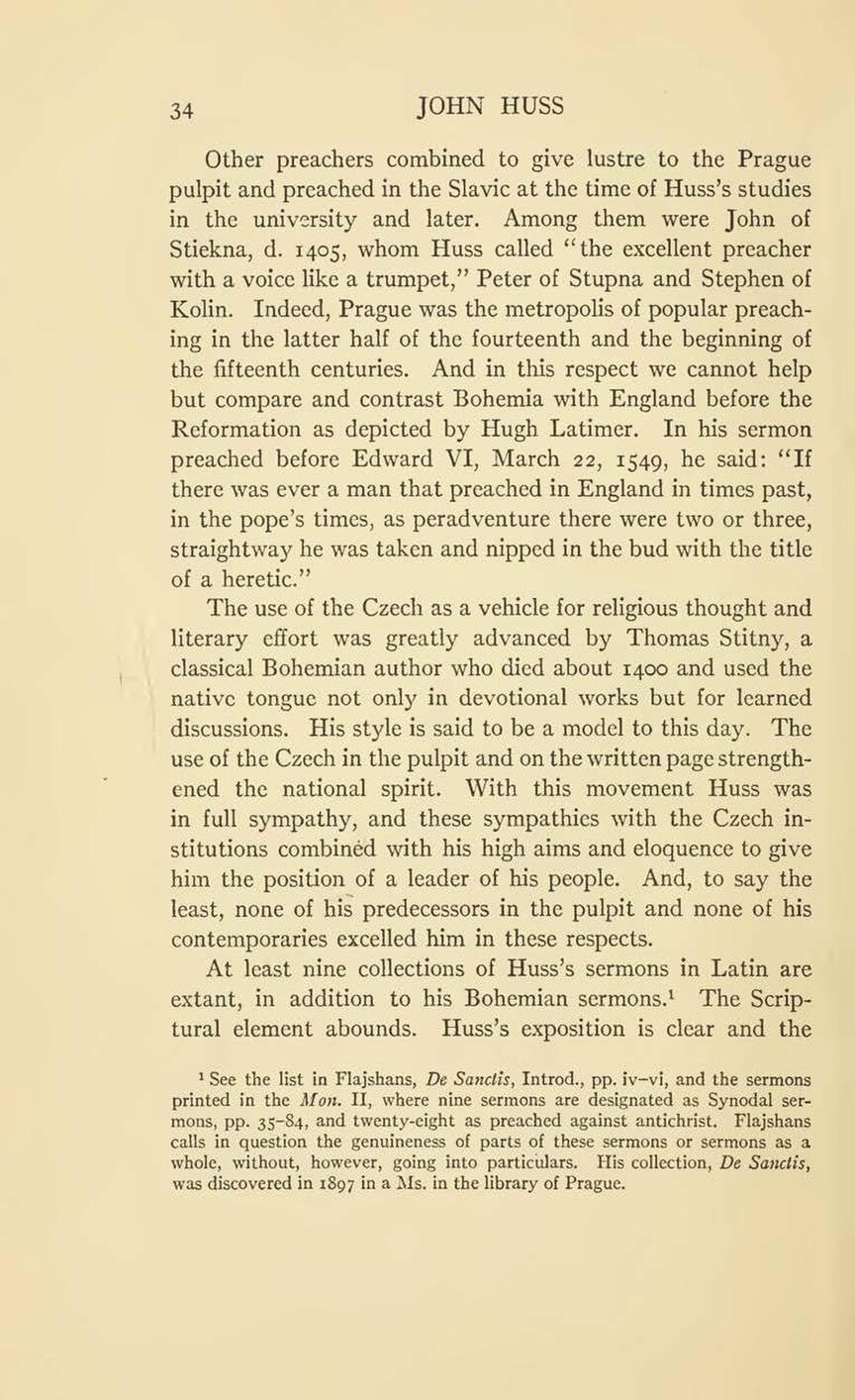Other preachers combined to give lustre to the Prague pulpit and preached in the Slavic at the time of Huss’s studies in the university and later. Among them were John of Stiekna, d. 1405, whom Huss called “the excellent preacher with a voice like a trumpet,” Peter of Stupna and Stephen of Kolin. Indeed, Prague was the metropolis of popular preaching in the latter half of the fourteenth and the beginning of the fifteenth centuries. And in this respect we cannot help but compare and contrast Bohemia with England before the Reformation as depicted by Hugh Latimer. In his sermon preached before Edward VI, March 22, 1549, he said: “If there was ever a man that preached in England in times past, in the pope’s times, as peradventure there were two or three, straightway he was taken and nipped in the bud with the title of a heretic.”
The use of the Czech as a vehicle for religious thought and literary effort was greatly advanced by Thomas Stitny, a classical Bohemian author who died about 1400 and used the native tongue not only in devotional works but for learned discussions. His style is said to be a model to this day. The use of the Czech in the pulpit and on the written page strengthened the national spirit. With this movement Huss was in full sympathy, and these sympathies with the Czech institutions combined with his high aims and eloquence to give him the position of a leader of his people. And, to say the least, none of his predecessors in the pulpit and none of his contemporaries excelled him in these respects.
At least nine collections of Huss’s sermons in Latin are extant, in addition to his Bohemian sermons.[1] The Scriptural element abounds. Huss’s exposition is clear and the
- ↑ See the list in Flajshans, De Sanctis, Introd., pp. iv–vi, and the sermons printed in the Mon. II, where nine sermons are designated as Synodal sermons, pp. 35–84, and twenty-eight as preached against antichrist. Flajshans calls in question the genuineness of parts of these sermons or sermons as a whole, without, however, going into particulars. His collection, De Sanctis, was discovered in 1897 in a Ms. in the library of Prague.
